The Collector's Daughter Read online
Page 18
A message was slipped under the door saying that Howard Carter was in the hotel, hoping to see Lord Carnarvon. Eve hurried downstairs to update him, but told him her father was too ill for visitors. She said the same to Lady Allenby, and Arthur Mace, and all the other friends who came, bearing flowers and fruit baskets and sympathy. Her father would hate for anyone to see him in this state. The only person she admitted was Porchy, who arrived on the fourth of April, posthaste from Alexandria.
“Thank goodness you’re here,” Eve said, jumping up to hug him. She didn’t say, but she thought, Thank goodness you made it in time.
“I got the steamer from Marseilles. It took forever,” he said, white-faced with shock when he saw the state of his father.
Pups was barely conscious, racked by coughing fits, vomiting up any liquid they could entice him to swallow. It was harrowing to watch. Eve, Porchy, and their mother sat by the bedside, stroking his hands and whispering reassurance.
“I’m scared,” he croaked, his voice little more than a whisper.
“We love you, Pups,” Eve told him. “You are the best father a girl could wish for. Please fight this. Please keep trying.”
“We need you, Pups,” Porchy said, anguish in his voice. Eve knew he must be thinking about the burden of the estate, which would fall on his shoulders if Pups died. He was only twenty-four, and must have hoped for much more time to learn how it all worked.
But in the early hours on the fifth, Pups’s breathing slowed to a labored hiss and then stopped. Almina listened to his chest, felt the pulse in his neck, and her voice cracked as she said, “He’s gone.”
Eve wanted to scream, No! He can’t be! He was far too young to die. She needed him. Who would give her away at her wedding? It should have been taking place later that month, but she couldn’t get married now, not without her father.
She bent to kiss his sweet face, on the side of his temple, and whispered, “Come back, Pups. Please come back.” But there was no response. He wasn’t there anymore.
She couldn’t bear to stay in the room a moment longer. She ran outside, barging straight into some reporters who were hovering in the corridor like vultures. Someone must have tipped them off. She shoved through the midst of them, ignoring their questions, and slammed the door of her own room behind her before throwing herself on the bed.
With deep certainty, she knew she would never recover from this loss. She’d always thought of herself as a lucky person, but this was the very worst of luck. The innocent happiness of her youth had been destroyed overnight and it felt as though everything was going to change for the worse.
Chapter Thirty-Three
London, January 1973
The morning after her telephone conversation with Ana, Eve renewed her search for the gold unguent container. It preyed on her mind that it might be cursed and that’s what was causing her strokes. Of course, she couldn’t discuss it with Brograve—he would simply tease her—but she’d always had a creepy feeling about it because of the harsh, unpleasant smell. It seemed incredible that the contents still had an oily quality and a strong scent after three thousand years locked in an airless environment, and even more incredible that they retained them out in the open air. That alone made it feel sinister. Could the unguent have been cursed by Maya? She tried to cling to the rational view, but it was hard not to feel anxious.
If only she had never taken it from the tomb. It hadn’t brought her any pleasure. She had never put it on display in any of her homes but had hidden it away in cupboards and then the attic, to stop that strange smell pervading their living space.
A memory came to her of the day they moved from London to Framfield. What age had Patricia been? It was just before she started school, so probably four. She kept getting under the feet of the removal men as they carried furniture out to their van.
“Go and play in the sitting room,” Eve told her. All the furniture had already been moved from there and only a few boxes remained. Patricia was quiet for ages so Eve left her alone, grateful for the peace. When she finally glanced in, she got the fright of her life. Patricia had found the unguent container and was playing with it.
“What are you doing?” she cried, rushing over. “Don’t touch that!” She pried it from Patricia’s hand and lifted her. The smell was especially strong when she buried her nose in her daughter’s neck.
“I put the perfume on,” Patricia said.
Irrational fear took hold. Eve rushed her to the bathroom and used a scratchy old towel that had been left behind to scrub at her daughter’s hands, face, and neck. The scent was in her hair too. She hesitated. Was there time to wash it? There would have to be. She got Eve to crouch with her head over the side of the bath and rinsed her hair under the tap, lathering with a sliver of soap, then rinsing again. Patricia was crying, terrified by her mother’s panic.
“What on earth are you doing?” Brograve asked, coming into the bathroom.
As Eve explained, she could hear how odd her actions sounded. What harm could it do? There couldn’t be anything toxic in the unguent. It just had an unpleasant odor.
Brograve was looking at her as if worried she’d lost her mind, but when he spoke, he was his usual pragmatic self: “It will be nice to have clean hair for the new house,” he said. “I’ll open the car windows to help it dry on the way there.”
“Silly Mummy,” Eve said, hugging Patricia, and surreptitiously checking that no trace of the scent lingered. “Fancy me making a fuss over nothing!”
When they arrived at Framfield, Eve directed the removal men to put the cardboard box with the gold container directly into the attic. She could remember it said “Lyons Tea. Always the Best” on the side.
But there was no Lyons Tea box in their cupboards now. She established that quite quickly. Most of the remaining boxes had their contents written on labels on the sides. Perhaps the container was in one of the old suitcases. She asked Sionead to lift them down, recognizing the brown leather one she had taken on her honeymoon. The lock had rusted, but Sionead managed to prize it open using a chisel. Inside she found her wedding veil and a crumbling posy of dried flowers, on top of an embroidered silk bedspread that a cousin of Brograve’s had given them as a wedding present. Eve had never liked the color, like spilled tea, so it hadn’t been used. She picked it up and thought she caught a vague whiff of the scent of the tomb. Perhaps this was the cloth she had used to wrap the container in back in Charles Street, but it wasn’t there anymore.
Another suitcase had some old toys of Patricia’s—dolls with china faces, a miniature tea set, some dollhouse furniture. Yet another contained Brograve’s model railway and a Meccano set from when he was a boy. He had never let her throw them away. But none contained the gold box.
Over lunch, she asked Brograve where he thought it might be.
“Do you remember about ten years ago we had to have the roof repaired at Framfield?” he asked.
She didn’t, but nodded all the same.
“We gave a lot of things from the attic to jumble sales at that time. Maybe your Egyptian box was among them.”
Eve had no memory of it, but she was sure she wouldn’t have let it go to a jumble sale. It was far too valuable, its history too significant. Imagine if someone bought it for a shilling, not knowing what it was? She shivered. That couldn’t be right. But where else might it be?
If it had begun to scare her, might she have wrapped it up and sent it back to the museum in Cairo, in an anonymous parcel, and not told Brograve? But if she had done that, Ana would know. It wouldn’t be on her list of missing items.
Eve strained her memory, focusing on the image of the gold box and the Lyons Tea logo, trying to force her brain to remember, but nothing came. Whole years of her life—decades even—had been swallowed up by the strokes. She sometimes wondered if the memories were still there, hiding among the curls of gray matter in her brain, or if they had been wiped clean as a blackboard, without leaving the faintest impression. She hoped it was th
e former, hoped they would all reappear one day, the way the streets of London reappeared after the blanket of snow melted—first in patches and then altogether.
Chapter Thirty-Four
Cairo, April 5, 1923
Straight after Pups died, Almina took charge. She was used to dealing with death from her work in the hospital. She announced she would stay in Cairo to take care of the formalities and arrange to get Pups’s body shipped home, while Eve and Porchy were to sail back and begin making preparations for the funeral.
Eve was crushed by grief and couldn’t imagine how she would manage the journey. She lay on her bed sobbing so hard she made herself sick, then she huddled on the bathroom floor, shivering, her stomach in knots. How did anyone survive this? What could she do? She was twenty-one years old but felt like a helpless child.
Almina came in and crouched to comfort her. Stroking her daughter’s hair, an arm tightly around her, she said, “We will get through this, Eve. You have to take it hour by hour. First I’m going to order breakfast to be brought to your room and you will eat something. I’ll pack while you bathe and prepare for the journey. We will grit our teeth and keep putting one foot in front of the other, because that’s all we can do.”
When the breakfast tray arrived, Almina spread some toast with butter and honey—Eve’s favorite when she was a child—and Eve managed a few bites, although her throat was so raw from crying it was hard to swallow.
Porchy was unnaturally quiet on the journey but had enough self-possession to purchase their travel tickets and hire porters to carry their luggage from the train to the steamer. Later, Eve couldn’t remember any details of the voyage except that she spent a lot of time sobbing in her cabin. Eating felt like an impossible chore because it was as though there was a huge rock lodged in her chest that didn’t leave space for food. Brograve met their train at Charing Cross and Eve clung to him, breathing his masculine scent and absorbing his steadiness.
As they walked arm in arm to the station entrance, Eve’s attention was caught by a newspaper kiosk. Pictures of Pups stared out from the front cover of almost every newspaper. “Killed by the curse of Tutankhamun” read a headline. “Writings in the tomb warned of tragedy” read another.
“Don’t look,” Brograve urged her. “There’s been a lot of nonsense written. Best not pay it any mind.”
It felt hateful that a family tragedy had been turned into sensational headlines. And they were wrong! There hadn’t been any writings. Eve was tempted to buy a paper, to read the worst, but instead she let herself be helped into Brograve’s car, glancing over her shoulder at the offensive kiosk.
On the journey to Highclere, Eve found that she was calmer if she stayed in physical contact with Brograve: resting her hand on his knee or her head on his shoulder. He didn’t say much but was a calm, solid presence, and he loved her; after all they’d been through, she knew that with certainty.
The butler greeted them at the door, wearing a black armband and conveying sympathies on behalf of all the staff. Catherine met them in the drawing room and hugged Eve warmly. She’d had a fire laid and tea prepared for their arrival, already slipping into the role of lady of the house. Now that Porchy had inherited, Catherine took over the title Countess of Carnarvon from Almina, and Highclere became theirs. Eve looked around at the pistachio-green walls and the reality dawned on her that this wasn’t her home anymore. Her mother’s house at Seamore Place had never felt like home either, and Berkeley Square, Pups’s London house, was to be sold. That made her technically homeless.
The four of them sat making a list of close friends who must be invited to the funeral. Eve went into Pups’s library to fetch his address book from the drawer of the Napoleon desk, and it felt like trespassing. That had been his domain, where children were allowed only under supervision. She had never opened that drawer before, and was choked to see he’d kept a bag of toffees inside, the same toffees he used to slip her as a child when she fell and hurt her knee, or when she’d had a scolding from her mother.
Back in the drawing room, the butler was talking to Porchy. “One other matter, sir,” he said. “I’m sorry to tell you that Lord Carnarvon’s dog, Susie, has also died. In fact, she passed away on the night of the fifth of April, which I believe is the same night as his lordship.”
“How strange!” Eve said. “Perhaps she had a sixth sense.”
Porchy spoke in the condescending tone he saved for his baby sister: “She was a twelve-year-old, three-legged mutt in poor health. She could have gone at any time.”
Eve explained to Brograve: “She lost her leg in a fox snare. All the same, I think it’s uncanny she died the same night as Pups. Rather touching even.”
He smiled and reached over to ruffle her hair.
* * *
The funeral was a quiet affair with family and close friends. They decided that Susie should be buried alongside Pups on a hill overlooking the estate of which he had been so proud. Eve sobbed throughout and Brograve kept his arm firmly around her, propping her up.
That evening they had a special dinner, with Highclere’s own beef and some rare wines from Lord Carnarvon’s cellar, followed by his favorite Napoleon brandy. It was hushed and respectful, but as they sat in the drawing room after dinner, Eve became aware of raised voices from the corner where her mother and Porchy were sitting.
As she listened, she realized they were talking about the death duties that would have to be paid on the estate and her heart started to pound.
Brograve tried to intervene: “Tonight is not the time for such a conversation,” he said. “Save it for another day.”
“When else?” Porchy demanded. “Mama is planning to disappear back to her London social life and her beloved hospital tomorrow, leaving me in the lurch.”
“It’s absurd,” Almina said. “You can’t really expect me to sink the remainder of my Rothschild inheritance into paying death duties to the government. What on earth would I live on?”
Eve’s eyes filled with tears. “Please, both of you, not now.” She felt too fragile to act as peacemaker.
“No!” Porchy slammed his glass on the table, some brandy sloshing over the side. “This place is mine now and if you’re not planning to help me, Mama, you can get the hell off my bloody land!”
Brograve stood up and walked between them, his imposing height giving him authority. “Funerals are strange occasions,” he said, turning from one to the other. “People say things they don’t mean and later regret. Let’s leave this subject for now and please—everyone—raise your glasses to Lord Carnarvon, who was the most decent of men.”
Eve raised her glass—“To Pups”—and the others joined in. She was proud of Brograve; he was a beacon of strength, like a lighthouse in the eye of a storm.
Almina rose to go to her room and when Eve followed, she found her mother packing.
“I’m going to London first thing in the morning,” she said. “Porchy and Catherine have made it very clear I’m not welcome.”
Eve ran to hug her. “That’s not true, Mama. Porchy is plastered. Don’t pay any attention.”
“It is true. Who am I anyway, now I’m no longer Countess of Carnarvon? I can’t be the dowager countess because your grandfather’s second wife has that title. I’m no one.”
How like her mother to worry about the title, Eve thought. But it wasn’t just that—it was what it symbolized: her hard-won acceptance in polite society after her illegitimate background. “You are a remarkable woman who runs a very successful hospital and you have dozens of friends who adore you. I adore you!”
“We must spend more time together, Evelyn.” Her mother kissed her cheek. “I’d like that.”
“Me too,” Eve said. She had lost one parent and she desperately needed the one she had left.
* * *
Eve stayed a few more days at Highclere, finding comfort in riding around the estate with Brograve, telling him stories of her childhood, and visiting places she and Pups had loved: the sta
bles, the lake, the farm, the circular Grotto Lodge. Every day she walked up Beacon Hill to sit by Pups’s grave and she talked to him in her head as if he were there. It made her feel close to him.
“Did you ever talk to Edward?” she asked Brograve. “After he died, I mean.”
“I still do,” he said. “I’ve told him all about you, and that I can’t wait to marry you.” He gave a woeful smile.
“I’m sorry,” Eve said. “We were supposed to be married this month.” Almina had canceled the church for now.
“It’s alright, my love,” he said. “We will marry when you are ready, but not a moment before.”
Among the deluge of condolence letters, Eve picked out one addressed to her, feeling as if she recognized the handwriting. When she opened it, she saw it was from the popular novelist Marie Corelli, the one who had written before Christmas. It began with her offering sympathy on Eve’s loss, followed by her assurance that Lord Carnarvon was at peace in the spirit world.
“He came to me in a séance yesterday evening,” she wrote, “and asked me to contact you. He said he doesn’t want you to mourn because he died a happy man, having achieved his life’s ambition with the discovery of the tomb. But he would like a chance to talk to you once more and asked that you consult a spirit medium. If it is at all possible, he promised he will be there with you.”
Eve got goose bumps all over. Could it be true? Had Pups contacted Marie Corelli from the afterlife? Why would he, when he had never met her and hadn’t held a high opinion of her? If he were going to contact any spiritual medium, surely it would have been Sirenia?
“Who’s the letter from?” Brograve asked, and she made a snap decision not to tell him. She had a strong feeling he would try to talk her out of consulting a medium, and she already knew that she was going to give it a try.
Chapter Thirty-Five
London, May 1923

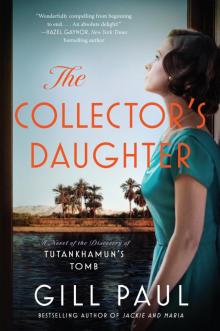 The Collector's Daughter
The Collector's Daughter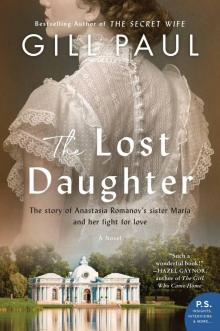 The Lost Daughter
The Lost Daughter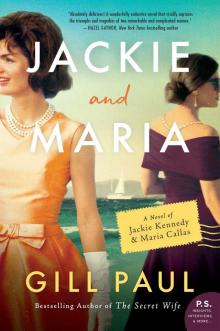 Jackie and Maria
Jackie and Maria The Affair
The Affair Love...Maybe
Love...Maybe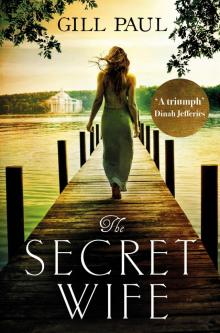 The Secret Wife
The Secret Wife No Place For a Lady
No Place For a Lady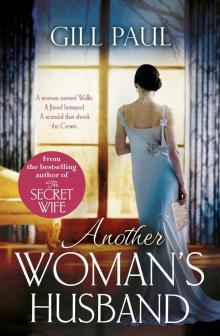 Another Woman’s Husband
Another Woman’s Husband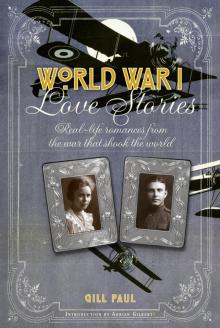 World War I Love Stories
World War I Love Stories World War II Love Stories
World War II Love Stories